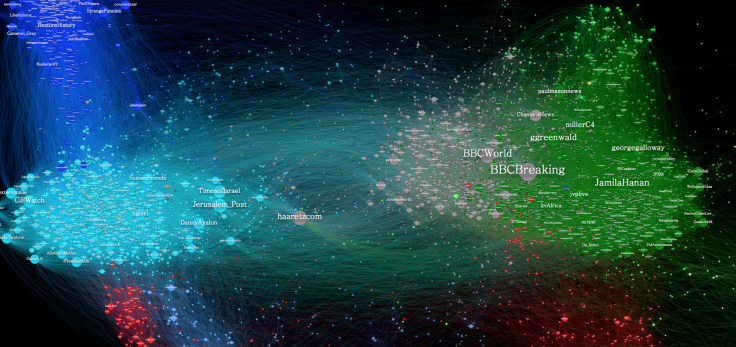Israel Gaza Facebook Fights: A New Gallup Poll Suggests Social Media Feuds About The Crisis Are Not Changing Any Minds

If you've signed on to social media in the past month, you've probably been overwhelmed by heated discussions-turned-arguments about the actions in Israel and Gaza. Comment sections abound with accusations laced with loaded language and bias. On Twitter, users are pledging allegiance via the hashtags #GazaUnderAttack and #IsraelUnderFire. Yet for all the online debates, Americans' views have barely changed over the past few weeks.
Gallup's latest poll, taken over the weekend, shows little to no change in Americans' views of the actions in the current Middle East conflict. Furthermore, the current views of those polled -- a random sample of 1,019 adults, aged 18 and older, living in all 50 U.S. states and the District of Columbia -- mirror the views of Americans polled during an April 2002 Isreali invasion of the West Bank during the Second Intifada.
For all the social media fighting, only 19 percent of those polled say they follow the current conflict 'A lot/Some' on Facebook, Twitter or other social platform. And the opinions of those following the conflict on social media differ only slightly from those who get their news and info from other sources. According to the Gallup analysis, "There is a slight tendency for those using social media to be less likely than those using other media to say Israel's actions are justified, but even among this group, the percentage is higher than the average of national adults. Those using the Internet and social media are slightly more likely to say that Hamas' actions are mostly justified, but these differences are, again, slight."
Select a question to see the "slight" differences social media makes:
Gallup concludes that opinions have remained unchanged due to Americans "respond[ing] to both crises in ways that reflect their basic attitudes toward Israel and the Palestinians rather than the specifics of either conflict." According to Gilad Lotan, chief data scientist at Betaworks, social media use strengthens our pre-existing beliefs. In an analysis of Twitter reactions to the attack on the UNWRA school in Beit Hanoun, he notes how social media shapes beliefs: "These very deliberate choices made by media outlets affect our reality, how well we’re informed as a public. We construct a representation of our interest by choosing to follow or 'like' specific pages. The more we engage with certain type of content, the more similar content is made visible in our feeds."
© Copyright IBTimes 2025. All rights reserved.






















